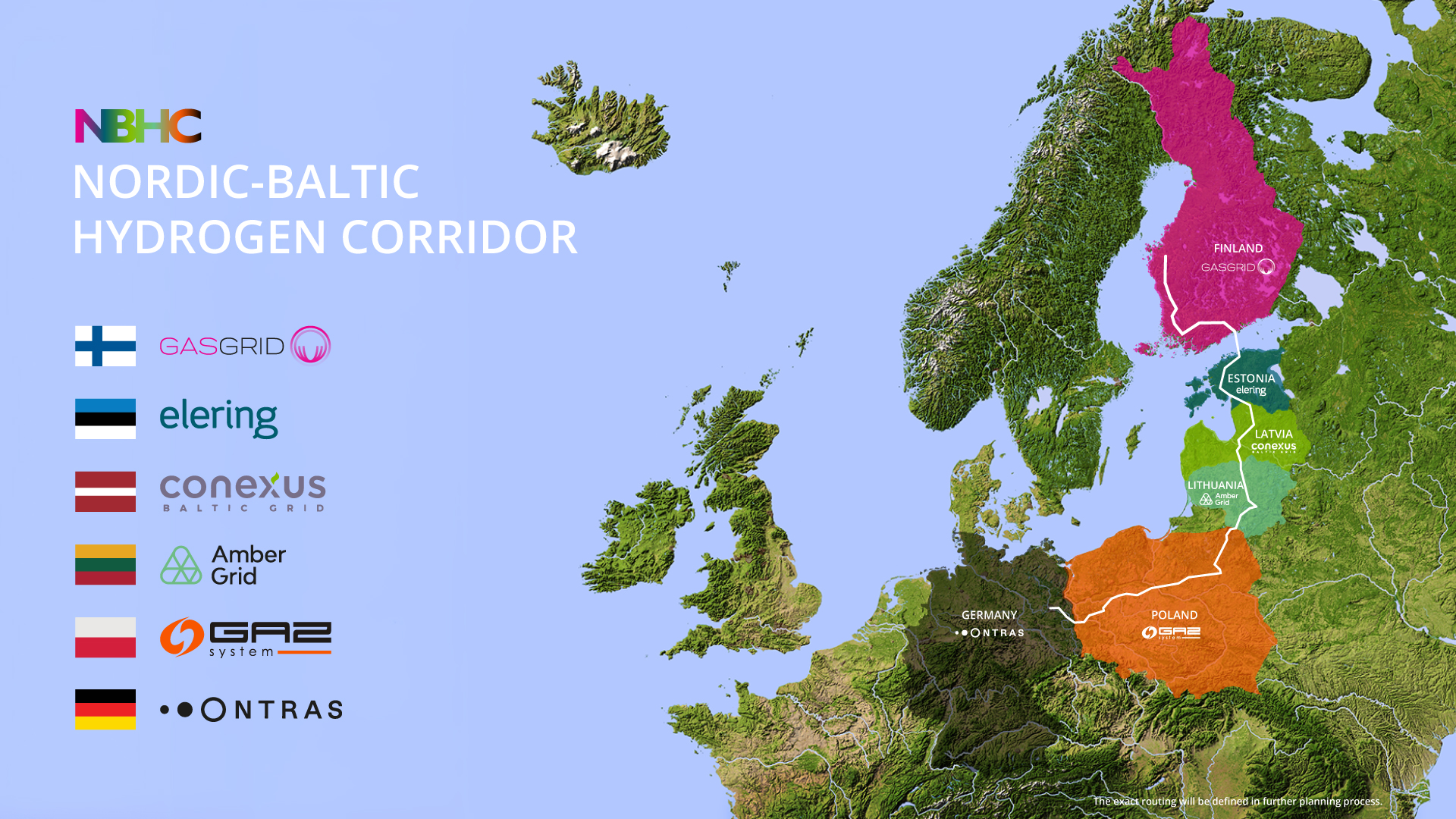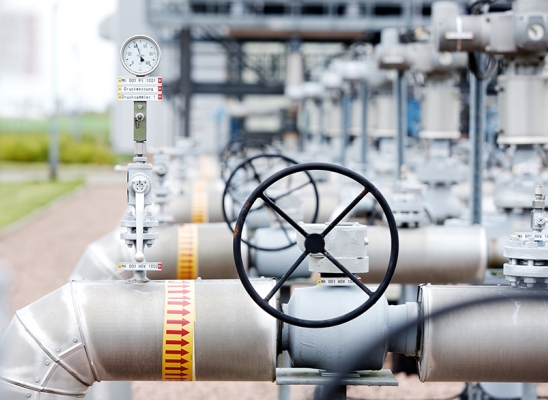Our Hydrogen Projects
The Nordic-Baltic Hydrogen Corridor connects the production centres in North-East Europe with the consumption centres in Central Europe

The European gas transmission system operators Gasgrid Finland (Finland), Elering (Estonia), Conexus Baltic Grid (Latvia), Amber Grid (Lithuania), GAZ-SYSTEM (Poland) and ONTRAS want to develop the cross-border hydrogen transport infrastructure from Finland through Estonia, Latvia, Lithuania and Poland to Germany, the Nordic-Baltic Hydrogen Corridor (NBHC). The aim of the project is to create a link between the green energy production regions in North-East Europe and the most important consumption centres in Central Europe. The NBHC could be the first among the European hydrogen corridors to be put into action.
Pre-feasability study shows positive results
The study, completed in July 2024, provides a comprehensive framework covering the technical, legal, organizational, and economic aspects necessary to realize the hydrogen corridor, which will play a crucial role in achieving the European Union's decarbonization goals with hydrogen produced and further supplied within the EU territory.
The Nordic and Baltic region provides significant renewable hydrogen potential identified within the pre-feasibility study at the amount of approx. 27.1 million tons (Mt) of renewable hydrogen production (based on combined onshore and offshore wind and solar) by 2040. This creates a large hydrogen market creation and export potential towards continental Europe which the NBHC aims to address.
By 2040, the corridor is projected to transport up to 2.7 million tons (Mt) of renewable hydrogen annually between the countries. The pre-feasibility study indicated that the NBHC can be one of the first operational cross-border hydrogen pipelines in Europe. The NBHC pipeline is currently planned to be 48 inches (1,200 mm) in diameter, with several compressor stations and spanning approximately 2,500 km.
The NBHC project is an important component in Europe's transition to a sustainable and decarbonized energy system, supporting the EU's climate goals and enhancing regional energy cooperation. The NBHC will significantly support the EU’s decarbonization targets by integrating renewable hydrogen across six member states. The corridor could reduce carbon emissions by up to 37 million tons of CO2 equivalent per year by 2050. The corridor will enhance energy security and supply diversity in the region and Europe, connecting indigenous renewable hydrogen production to existing and new demand centers, as well as contribute to the decarbonization of hard-to-abate sectors.
Moving forward, based on the pre-feasibility study results the TSOs now plan to commence work on the feasibility study covering the project‘s detailed technical analysis, commercial and economic assessment as well as the detailed implementation timeline of the Nordic-Baltic Hydrogen Corridor.

